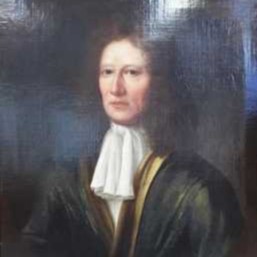John Hewley facts for kids
Sir John Hewley (1619–1697) was an important English leader. He worked as a magistrate, which is like a local judge, and was also a Member of Parliament (MP) for a town called Pontefract. This meant he was chosen to help make laws for the country. Sir John was an early member of a political group called the Whigs. He supported the Parliament during a time when they disagreed with the King. After he passed away, his wife, Sarah Hewley, started a charity in 1705 called the Hewley Trust, which is now known as the Sarah Hewley Trust.
Contents
Sir John Hewley's Early Life
Sir John Hewley was born in 1619. His father was also named John Hewley and lived in a place called Wistow, near Selby. When Sir John was older, he joined a famous law school in London called Gray's Inn on February 4, 1638. This was an important step in his career.
His Work as a Judge
After his studies, Sir John became a "recorder" for the town of Doncaster. A recorder was a type of judge who oversaw legal cases in a town or city. This role showed he was trusted and respected in the legal world.
Sir John's Political Career
Sir John Hewley was involved in English politics for many years. He served as a Member of Parliament (MP) for different areas.
Representing Pontefract
From 1658 to 1660, Sir John was an MP for Pontefract. This was a time of big changes in England, as the country was recovering from a civil war.
Knighted by the King
Even though he had sided with Parliament against the King earlier, Sir John was knighted by King Charles II. This happened at Whitehall Palace on June 30, 1663. Being knighted meant he was given the title "Sir" and was recognized for his service.
Representing York
Later, Sir John became an MP for the city of York. He served in Parliament for York in 1678, 1679, and 1681. This shows he was a consistent and respected voice in the government.
Supporting Learning and Religion
Sir John Hewley was not just a politician and judge; he also cared about education and religious freedom.
Helping Writers and Scholars
He believed in the importance of books and knowledge. Sir John gave money to help publish important literary works. For example, he supported William Dugdale's Monasticon, which was a big book about old monasteries. He also helped Matthew Poole with his Synopsis Criticorum, a major work of religious study.
Supporting a New Chapel
Sir John was a Presbyterian, which was a type of Protestant Christian faith. At that time, not all religious groups had full freedom. He had a Presbyterian chaplain, who was like a minister, who held public church services in York. To support this, a special chapel was built in 1692 at St Saviourgate. It was shaped like a cross and was officially registered in 1693. Today, this building is known as the York Unitarian Chapel.
Later Life and Legacy
Sir John Hewley lived a long and influential life.
His Death and Burial
Sir John passed away at his home in the countryside, called Bell Hall, near York, on August 24, 1697. He was buried in St Saviour's Church in York.
The Hewley Trust
Sir John's wife, Sarah Wolrych, outlived him. She continued his legacy of supporting good causes. She created the Lady Hewley Trust, which is now known as the Sarah Hewley Trust. This trust helps support religious education and other charitable activities. Sarah was later buried next to Sir John in St Saviour's Church.
 | Janet Taylor Pickett |
 | Synthia Saint James |
 | Howardena Pindell |
 | Faith Ringgold |


